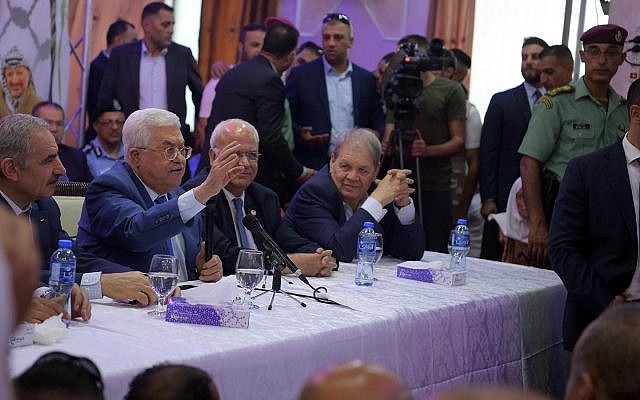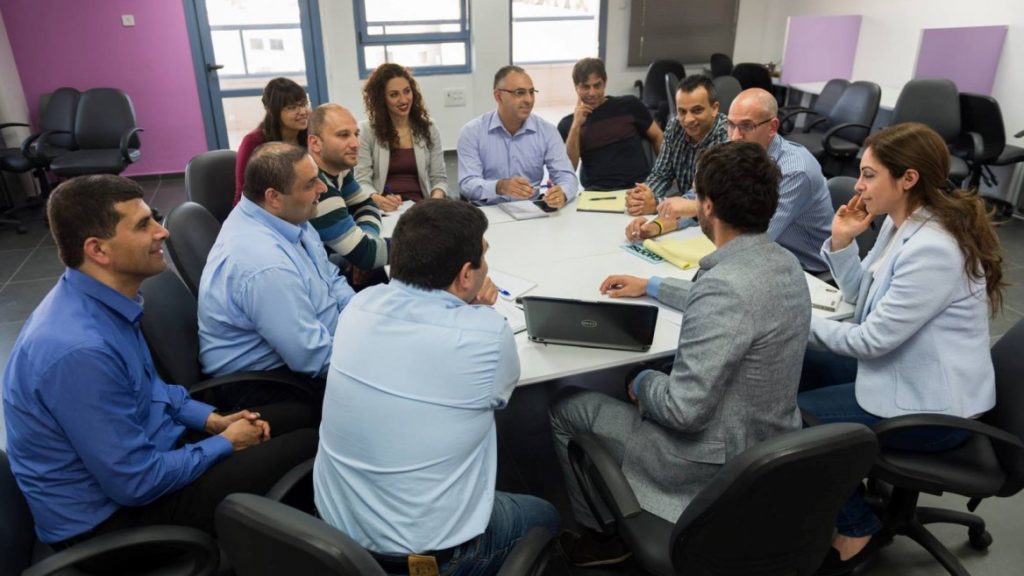Australia/Israel Review
Scribblings: Abbas and the “ethnic cleansing solution”
Sep 27, 2019 | Tzvi Fleischer

I have written before in this column that Palestinian public discourse and polling makes it clear that many Palestinians do not want a two-state solution, or even a one-state solution – the “secular democratic state in all of Palestine” which remains the declared aim of the PLO’s Charter. What many Palestinians are seeking is actually an “ethnic cleansing solution” – a belief that justice demands that the Jewish inhabitants of Israel largely or entirely be expelled from all of what is regarded as land belonging only to Palestinians.
This desire for ethnic cleansing of the area from Jews is not limited to extremist groups like Hamas – but also pops up frequently in the rhetoric of the supposedly moderate Palestinian Authority (PA) and the Fatah movement which dominates it.
Indeed, even the talk about “secular democratic state” in all of Palestine in the 1968 PLO Charter is linked to expulsionist aims. There were repeated references at the time to the need to expel “Zionists” from Palestine, with Zionists defined as any Jews who had not “normally resided in Palestine until the beginning of the Zionist invasion” in the words of the charter. In other words, the “secular democratic” one-state solution in the PLO’s telling actually involved expelling all but a tiny minority of the Jews of Israel.
In August, Mahmoud Abbas, President of the PA and head of Fatah, demonstrated such beliefs remain alive and well in the Palestinian mainstream. He himself came very close to calling for an ethnic cleansing solution in a speech at the Jalazone Refugee Camp near Ramallah on Aug. 10, translated by the Middle East Media Research Institute. Abbas said:
“We shall remain [here], and nobody can remove us from our homeland. If they want, they themselves can leave. Those who are foreign to this land have no right to it. So we say to them: Every stone you have [used] to build on our land, and every house you have built on our land, is bound to be destroyed, Allah willing….No matter how many houses and how many settlements they declare that they [plan to build] here and there – they shall all be destroyed, Allah willing. They will all go to the garbage bin of history.
While Abbas stopped just short of saying the Jews should or will be expelled, he said they “can leave” and are “foreign to this land [and] have no right to it.” Moreover, his rhetoric about how every house they have built on this land “is bound to be destroyed,” and will “go to the garbage bin of history” strongly implies the Jewish presence in the land will be destroyed or erased.
As I have said before, given this sort of Palestinian discourse, it is no surprise that repeated two-state peace efforts have failed, and it is also no surprise that Israelis have become increasingly cynical about efforts to create a two-state outcome in the short-to-medium term.
The Palestinian national movement has built an identity largely on the complete negation of the idea of coexistence with enemies, described as imperialist usurpers with no legitimate rights. (This is also the basis of the self-defeating anti-normalisation frenzy that has often been highlighted in this column.) This explains why the Palestinian national movement has repeatedly demonstrated an inability to seriously contemplate or commit to peace proposals that require a modicum of coexistence and mutual tolerance to succeed.
Spectacular stat on Arab high-tech

Tsofen: An Israeli NGO integrating Arabs into high-tech
This column has also repeatedly sought to highlight the increasing signs of integration and an improving situation generally in Israel’s Arab minority across a number of metrics. Well, here’s a new statistic demonstrating some of the extraordinary progress in integration over recent years.
According to a study done by Tsofen, an Israeli NGO which works to integrate Arabs into Israel’s high-tech industry, in 2008, they found only 350 Arab Israeli engineers working in Israel’s world-class high-tech sector, all of them men. Today, there are 6,600, one-quarter of them women. That’s a 2,000% increase in a mere 11 years.
The 6,600 Arab engineers still make up only 4.5% of the 150,000 Israeli high-tech engineers, while Arabs make up around 20% of the Israeli population, so there is some way to go yet. However, this turnaround has been so rapid that any Jewish-Arab disparities in the lucrative high-tech sector could be completely gone in a relatively short timeframe.
Statistics from the education system certainly indicate that the trend is set to continue. Tsofen CEO Sami Saadi told Haaretz that “Over the 30-year period between 1984-2014, some 1,598 Arabs finished degrees in high-tech related fields. In the 2018-2019 school year, some 5,443 Arab students started studies in high-tech related fields.”
Stories like this one not only put the lie to the ridiculous claims about “Apartheid Israel” but also help explain why Arab Israelis largely tell pollsters that their life in Israel is pretty good. Thus a poll published by Israel’s Kan public broadcaster in early September saw 71.5% of Arab Israelis surveyed saying they are satisfied with their life in Israel; 65.2% saying they are generally treated equally, and 64.7% expressing an overall positive view of the state.
Moreover, amazingly, given incumbent Israeli PM Binyamin Netanyahu’s sometimes undiplomatic and divisive rhetoric about Israel’s Arab minority, in that same poll, 23.6% of Arab Israeli respondents said they believed Netanyahu was the person best suited for the role of Israel’s PM. That is lower than their Jewish counterparts – who picked Netanyahu as preferred PM in pre-election polls at an average of around 40% – but still reasonably high.
Tags: Israel, Mahmoud Abbas, Palestinians






